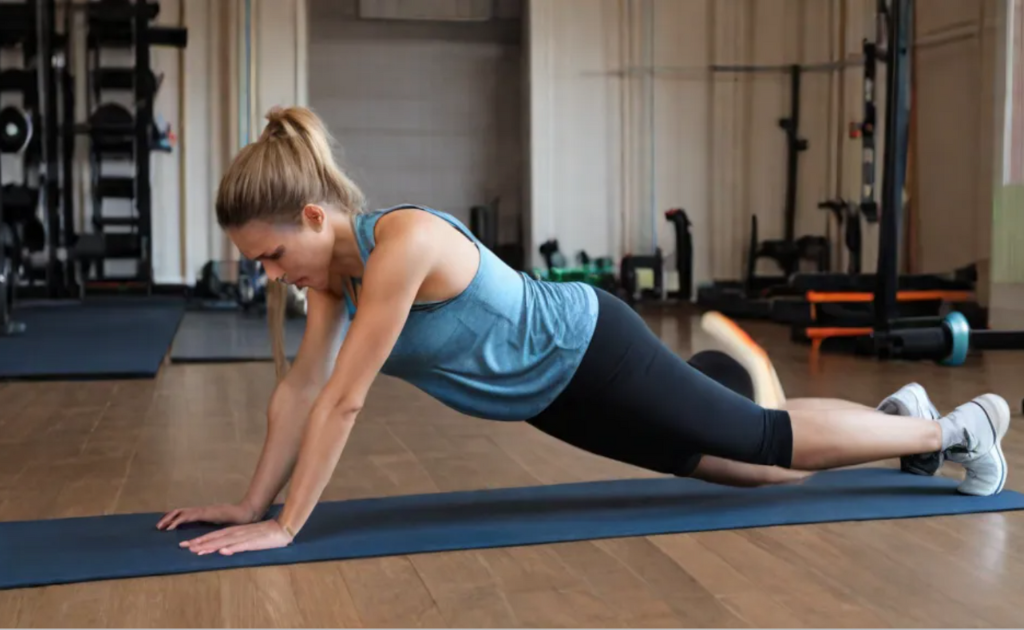Introduction
Physical exercise, a cornerstone of a healthy lifestyle, offers a myriad of benefits that extend far beyond physical fitness. From boosting mood to sharpening cognitive function, regular physical activity can significantly enhance your overall well-being. Let’s delve into the top ten advantages of incorporating exercise into your daily routine.
1. Enhanced Physical Health
Regular exercise is a potent tool for improving physical health. It strengthens muscles, bones, and the cardiovascular system, reducing the risk of chronic diseases such as heart disease, stroke, and type 2 diabetes. Additionally, it can help maintain a healthy weight, boost energy levels, and improve sleep quality.
2. Improved Mental Health
Physical activity has a profound impact on mental health. It can alleviate symptoms of depression and anxiety, reduce stress, and improve mood. Exercise stimulates the release of endorphins, natural mood elevators, which can leave you feeling happier and more relaxed.
3. Boosted Cognitive Function
Engaging in regular physical activity can enhance cognitive function, including memory, attention, and problem-solving skills. It can also reduce the risk of cognitive decline and dementia as you age.
4. Increased Energy Levels
While it may seem counterintuitive, exercise can actually boost your energy levels. Regular physical activity can improve your body’s efficiency in using oxygen, leading to increased stamina and reduced fatigue.
5. Stronger Immune System
A strong immune system is essential for fighting off infections and illnesses. Regular exercise can help strengthen your immune system, making you less susceptible to colds, flu, and other infections.
6. Reduced Risk of Chronic Diseases
As mentioned earlier, physical activity can significantly reduce the risk of chronic diseases such as heart disease, stroke, type 2 diabetes, and certain types of cancer.1 By incorporating exercise into2 your lifestyle, you can take proactive steps to protect your long-term health.
7. Improved Sleep Quality
Struggling with insomnia? Regular physical activity can help improve your sleep quality. It can help you fall asleep faster, sleep more soundly, and wake up feeling refreshed.
8. Enhanced Self-Esteem
Achieving fitness goals and seeing positive changes in your body can boost your self-esteem and body image. Regular exercise can help you feel more confident and empowered.
9. Social Benefits
Many forms of exercise, such as team sports and group fitness classes, provide opportunities for social interaction and connection with others. Building strong social relationships can have a positive impact on mental health and overall well-being.
10. Longer Lifespan
Numerous studies have shown that regular physical activity can extend your lifespan. By reducing the risk of chronic diseases and improving overall health, exercise can help you live a longer, healthier life.
Conclusion of physical exercise
Incorporating regular physical activity into your daily routine is a powerful investment in your health and well-being. From physical and mental health benefits to improved cognitive function and increased lifespan, the advantages of exercise are undeniable. So, lace up your sneakers, step outside, and reap the rewards of a more active lifestyle.
FAQ‘s
Q: How much exercise do I need to get these benefits?
A: Aim for at least 150 minutes of moderate-intensity exercise or 75 minutes of vigorous-intensity exercise per week. You can3 break this down into shorter sessions throughout the week.
Q: What types of exercise are best?
A: A variety of exercises is best to keep things interesting and target different muscle groups. Consider activities like walking, running, swimming, cycling, dancing, yoga, or strength training.
Q: Is it too late to start exercising?
A: It’s never too late to start exercising. Even small amounts of physical activity can make a big difference in your health. Consult your doctor before starting a new exercise program, especially if you have any health concerns.
Q: How can I stay motivated to exercise regularly?
A: Find activities you enjoy, set realistic goals, track your progress, and reward yourself for your achievements. Consider joining a fitness class, finding a workout buddy, or listening to music or podcasts while exercising.
Additional Tips
- Start slow and gradually increase the intensity and duration of your workouts. This will help prevent injuries and reduce the risk of burnout.
- Listen to your body. If you’re feeling pain, take a break and rest.
- Find a workout buddy. Having a workout partner can help you stay motivated and accountable.
- Make exercise a part of your daily routine. Schedule it into your calendar just like any other important appointment.
- Find activities you enjoy. If you don’t enjoy your workouts, you’re less likely to stick with them.
- Set realistic goals. Don’t try to do too much too soon.
- Track your progress. This will help you stay motivated and see how far you’ve come.
- Reward yourself for your achievements. This will help you stay motivated and keep you on track.
By following these tips, you can make regular physical activity a part of your lifestyle and reap the many benefits it has to offer.








